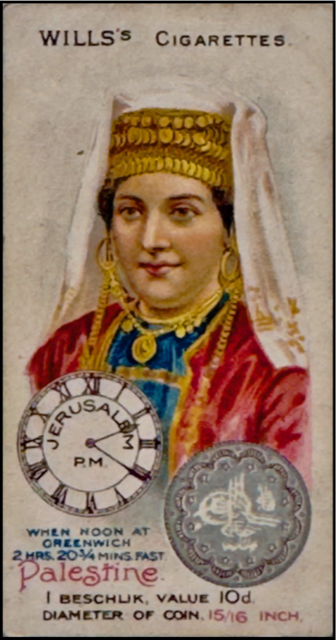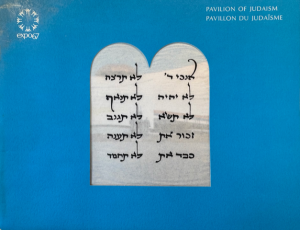W.D. and H.O. Wills of Bristol, England, founded in 1786, was the first British company to mass produce cigarettes and to encourage sales, it included trading cards in the packages. In 1907, the theme of the give-away was Time and Money in Different Countries, a set of 50 cards which showed the currency used in each country and the time difference from Greenwich Mean Time.
This card for Palestine (then a province of the Ottoman Empire) shows that the currency is the beschlik and that Palestine is 2 hours and 20 and three-quarter minutes ahead of Greenwich, England.
The odd time difference is explained by the fact that until it was outlawed by the British in 1922, Palestine’s time system was not based on 24 equal hours but on the alaturka (Ottoman-style) system in which daytime and nighttime were each divided into 12 periods, which meant that the length of the period would vary with the season.
Until it was destroyed by the British in 1922, there was a clock tower at the Jaffa Gate in Jerusalem which on two sides showed the time in the European style and on the other two sides showed the time in the alaturka system. The British said that the clock tower was destroyed for aesthetic reasons, although some suggest it was done in order to impose the European time system and modernize Palestine.
The back of the card indicates that Palestine had a population of 700,000—about 100,000 were Jews and 80 per cent were “Mohammedans”—and that its exports consist chiefly of fruits, olive oil and maize.
In 2023, Israel’s exports totalled $156 billion U.S., down 6 percent from the record high in 2022, largely due to the war with Hamas which began on Oct. 7. Today, Israel’s top exports are diamonds, integrated circuits, refined petroleum and medical instruments.







